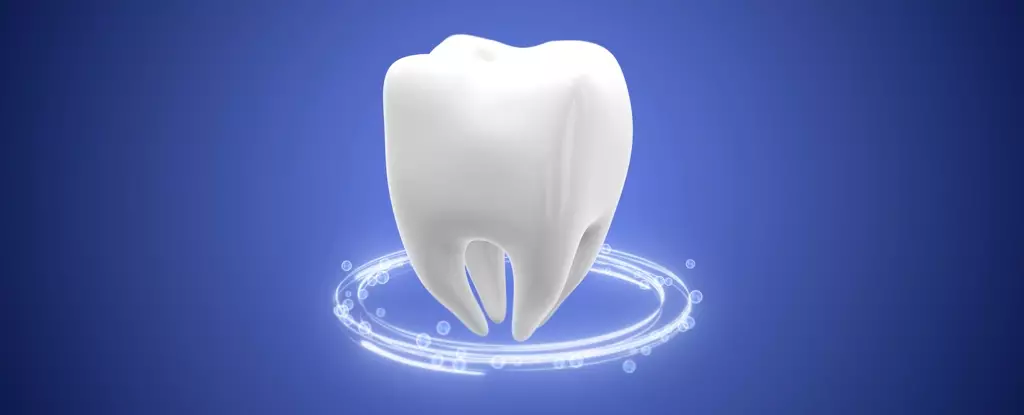When one envisions the future of dental care, the images conjured are often shrouded in a sense of uncanny turmoil. The thought of lab-grown teeth tends to elicit discomfort, reminiscent of horrors that belong in a science fiction thriller rather than a dental clinic. However, it is essential to dispel these unfounded fears and embrace the tantalizing prospect of a breakthrough in restorative dentistry. Researchers from esteemed institutions like King’s College London and Imperial College London are paving the way towards revolutionary treatments that could change our relationship with dental health forever.
A Paradigm Shift in Tooth Repair
The groundbreaking research focuses on a unique hydrogel material that enhances cellular communication during tooth formation. Cell-to-cell interaction is crucial for the regeneration of dental structures, and this new framework facilitates the harmonious collaboration of dental epithelial and mesenchymal cells harvested from mouse embryos. Unlike traditional fillings or implants, which merely serve as stop-gap solutions, these lab-grown teeth represent an advanced approach that could offer a permanent fix to dental woes. “Lab-grown teeth would naturally regenerate, integrating into the jaw as real teeth,” notes Xuechen Zhang, a PhD student at King’s College London. This innovative method holds the promise of producing teeth that are not only biologically compatible but also robust and durable, effectively pushing aside the ages-old adversaries of decay and loss.
Natural Healing: The Ideal Solution?
Imagine a world where dental injuries can heal as effortlessly as a scraped knee. This vision is closer to fruition than one might expect, as scientists are exploring how to enable our teeth to repair themselves using the body’s innate healing mechanisms. The slow release of biological signals from the newly developed hydrogel mimics natural processes, creating an environment conducive to self-repair. It’s like evolving dentistry to the point where our bodies’ natural proficiency in regeneration is harnessed rather than hindered. The implications extend beyond convenience; this could symbolize a fundamental shift in our understanding of oral health.
Challenges Ahead: The Path to Practical Application
Despite the optimism surrounding this research, challenges abound in transitioning these lab-based advancements to real-life applications. The ultimate goal is to replicate the ideal conditions for tooth growth within our mouths—an ambitious undertaking that requires strategic thinking and innovative methodologies. Some proposed solutions include the transplantation of cellular materials or the implantation of fully-grown lab-produced teeth. As researchers review various options, there is a palpable sense of urgency to propel this science from the lab bench into clinical practice.
Furthermore, it is critical to broaden the scope of research to include ways in which these techniques could address severe conditions like anodontia, where patients suffer from the absence of teeth. Potential avenues for treatment, including antibody therapies, may soon be on the horizon—perhaps within the decade. In this way, the progress made in the realm of regenerative dentistry offers not merely cosmetic fixes but a comprehensive approach to overcoming serious dental health issues.
The Ripple Effect on Overall Health
A pivotal factor in this ongoing research is the connection between oral health and overall well-being. The ramifications of untreated dental issues extend far beyond the mouth, contributing to a host of health problems. This interconnectedness underscores the importance of innovative dental practices and heights the urgency of finding sustainable solutions. As pointed out by dental expert Ana Angelova Volponi, the integration of cutting-edge techniques into the field of dentistry could herald a new era: one that not only prioritizes aesthetics but also holistic health.
The potential for lab-grown teeth to enhance our lives cannot be overstated. As researchers carve new paths towards effective restorative treatments, the public’s perception must shift from fearing the unknown to anticipating the benefits that such innovation may bring. In the face of ongoing challenges within dental care, this research serves as a beacon of hope—pointing toward a future where we may no longer fear the dreaded dental visit, but rather welcome it as an opportunity for healing and regeneration.


Leave a Reply